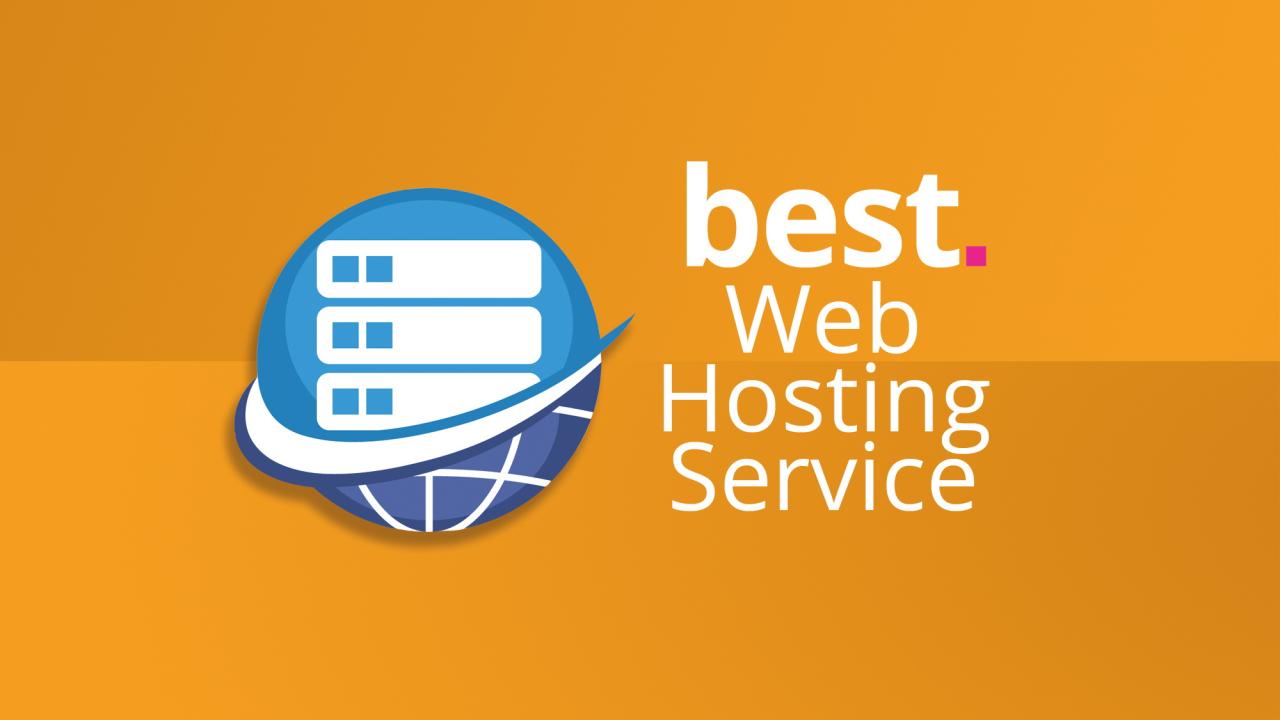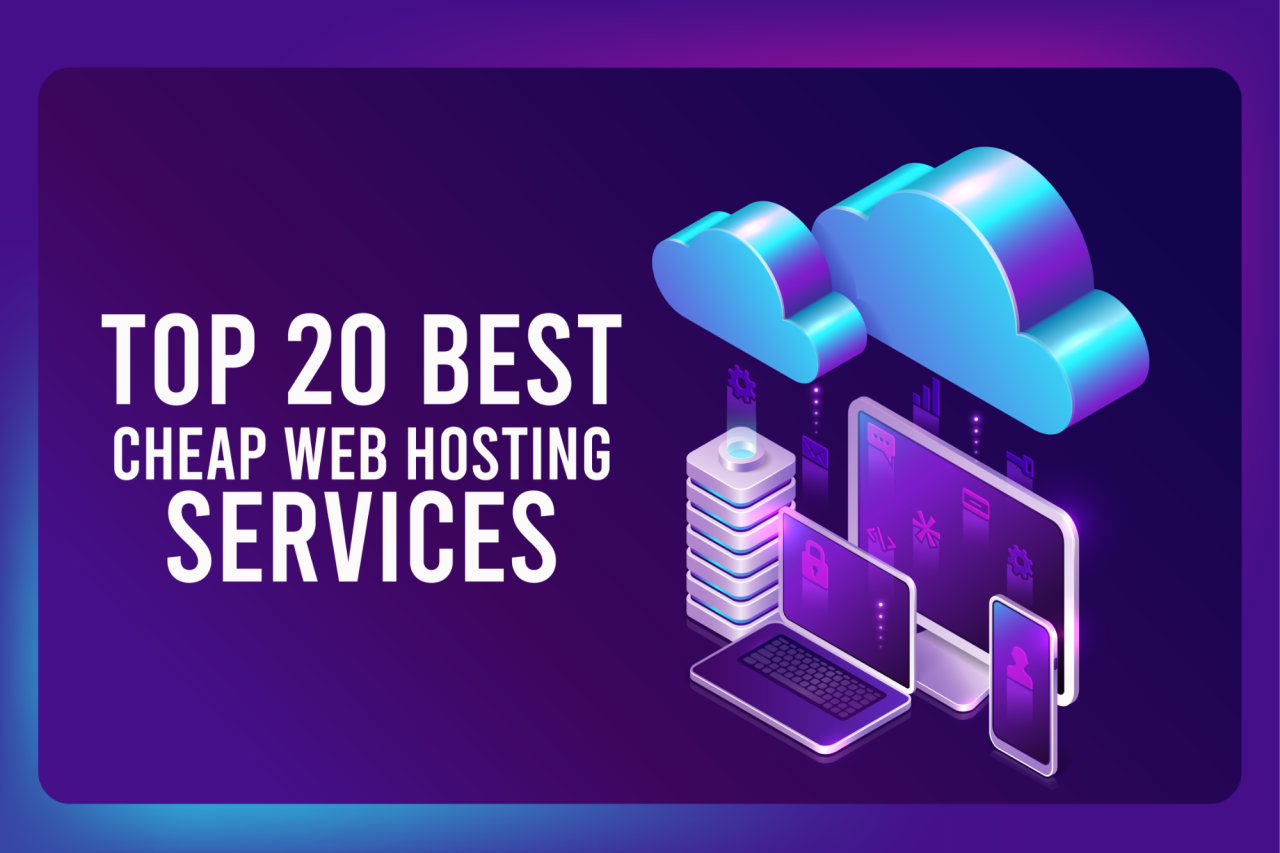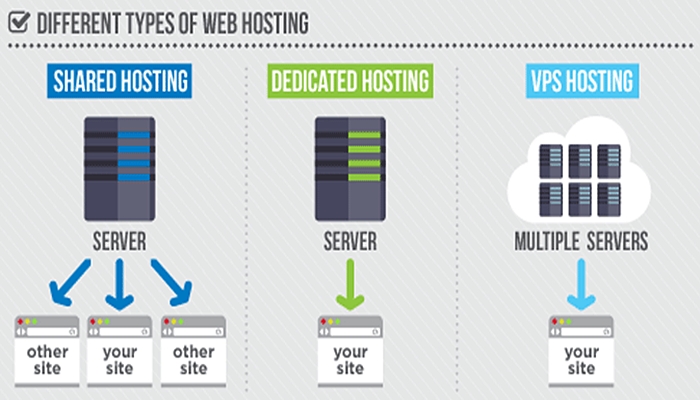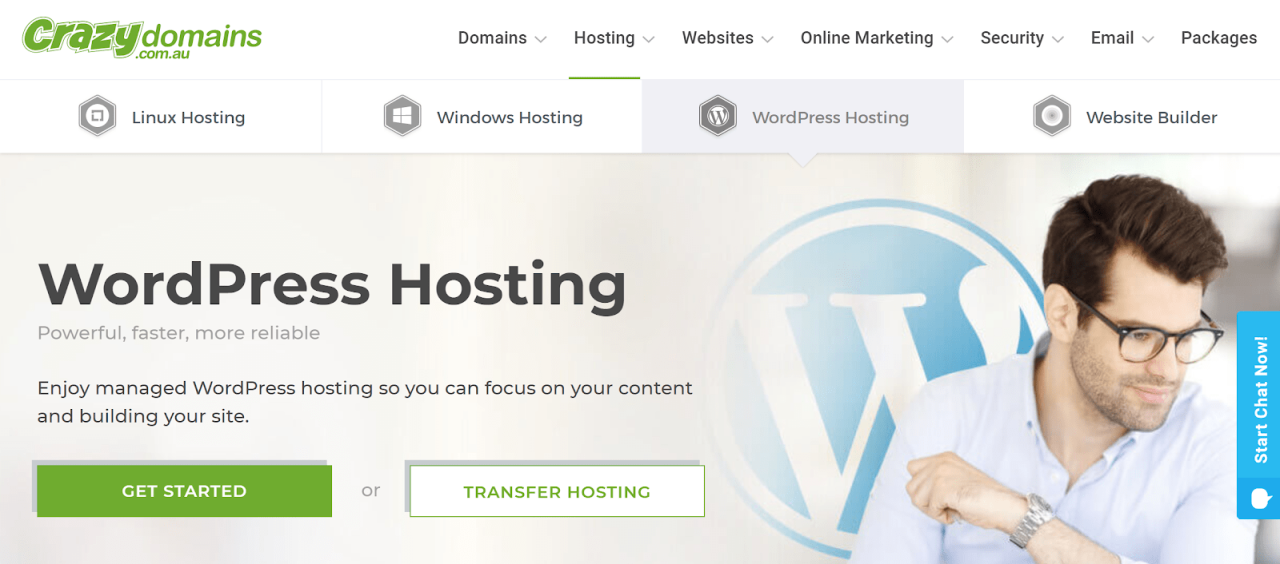Finding the best hosting provider can feel like a daunting task, but it’s crucial for your website’s success. Whether you’re a seasoned blogger or a budding entrepreneur, choosing the right hosting plan can make all the difference in your online journey.
This guide will equip you with the knowledge and tools to navigate the world of hosting, empowering you to make an informed decision that aligns with your website’s specific needs and goals.
Understanding Hosting Needs
Choosing the right hosting provider is crucial for your website’s success. The type of hosting you choose will impact your website’s performance, security, and overall user experience. Understanding your specific needs and requirements will help you make an informed decision.
Types of Hosting
Different hosting types cater to varying website needs and budgets. Understanding these options is essential for choosing the best fit for your website.
- Shared Hosting: Shared hosting is the most affordable option, where multiple websites share the same server resources. This can be a good choice for small websites with low traffic, as it’s cost-effective. However, performance can be affected by other websites on the same server.
- VPS Hosting: Virtual Private Server (VPS) hosting provides a dedicated portion of a server’s resources for your website. This offers more control and resources than shared hosting, making it suitable for websites with moderate traffic and resource demands.
- Dedicated Hosting: Dedicated hosting gives you exclusive access to an entire server, providing maximum control and performance. This is ideal for high-traffic websites, resource-intensive applications, or websites requiring high security. However, it’s the most expensive option.
- Cloud Hosting: Cloud hosting utilizes a network of servers to distribute website traffic and resources. This offers scalability, flexibility, and reliability, making it suitable for websites with fluctuating traffic or demanding applications. Cloud hosting is typically more expensive than shared or VPS hosting.
Hosting Comparison
Here’s a table comparing the different types of hosting:
| Hosting Type | Pros | Cons |
|---|---|---|
| Shared Hosting | Cost-effective, easy to set up | Limited resources, performance affected by other websites, less security |
| VPS Hosting | More resources and control, better performance, improved security | More expensive than shared hosting, less control than dedicated hosting |
| Dedicated Hosting | Maximum resources and control, highest performance, best security | Most expensive option, requires technical expertise |
| Cloud Hosting | Scalability, flexibility, reliability | More expensive than shared or VPS hosting, can be complex to manage |
Key Factors to Consider
Several factors influence your hosting choice. Understanding these factors will help you determine the most suitable hosting option for your needs.
- Website Traffic: The amount of traffic your website receives is a key factor. High-traffic websites require more resources and may need VPS, dedicated, or cloud hosting. Low-traffic websites can typically use shared hosting.
- Storage Requirements: The amount of storage space needed for your website depends on factors like the number of files, images, and databases. Websites with large media libraries or complex databases may require more storage space.
- Security Needs: The security of your website is paramount. Websites handling sensitive data or financial transactions require robust security measures, which may necessitate VPS, dedicated, or cloud hosting.
- Budget: Your budget will play a significant role in your hosting decision. Shared hosting is the most affordable option, while dedicated and cloud hosting are more expensive.
Top Hosting Providers

Choosing the right hosting provider is crucial for your website’s success. You need a provider that can offer the features and performance you need at a price you can afford. There are many different hosting providers available, each with its own strengths and weaknesses.
Reputable Hosting Providers and Their Strengths
The following is a list of reputable hosting providers, along with their respective strengths:
- Bluehost: Known for its user-friendly interface, affordable plans, and reliable performance. It’s a popular choice for beginners and small businesses.
- HostGator: Offers a wide range of hosting plans, including shared, VPS, and dedicated servers. It’s a good option for businesses that need more power and flexibility.
- GoDaddy: One of the largest hosting providers in the world, GoDaddy offers a wide range of hosting solutions, including shared, VPS, dedicated servers, and WordPress hosting. It’s a good choice for businesses of all sizes.
- SiteGround: Known for its fast loading speeds, excellent customer support, and high-quality security features. It’s a good option for businesses that need a reliable and secure hosting provider.
- DreamHost: Offers a variety of hosting plans, including shared, VPS, and dedicated servers. It’s known for its excellent customer support and its commitment to sustainability.
- A2 Hosting: Offers fast and reliable hosting with a focus on speed and performance. It’s a good option for businesses that need a hosting provider that can handle high traffic volumes.
Unique Features Offered by Hosting Providers
Each hosting provider offers unique features that differentiate them from the competition. Here are some examples:
- Bluehost: Offers a free domain name for the first year with all hosting plans.
- HostGator: Provides a money-back guarantee on all hosting plans.
- GoDaddy: Offers a wide range of website building tools and resources, including GoDaddy Website Builder and GoDaddy Studio.
- SiteGround: Includes free daily backups and malware detection with all hosting plans.
- DreamHost: Offers a free SSL certificate with all hosting plans.
- A2 Hosting: Provides a 99.9% uptime guarantee on all hosting plans.
Key Features and Pricing of Hosting Providers
The following table shows the key features and pricing of some of the most popular hosting providers:
| Hosting Provider | Shared Hosting Price | VPS Hosting Price | Dedicated Server Price | Key Features |
|---|---|---|---|---|
| Bluehost | $2.95/month | $19.99/month | $79.99/month | User-friendly interface, affordable plans, reliable performance, free domain name for the first year |
| HostGator | $2.75/month | $19.95/month | $79.95/month | Wide range of hosting plans, money-back guarantee, free website migration |
| GoDaddy | $5.99/month | $19.99/month | $119.99/month | Wide range of hosting solutions, website building tools, 24/7 customer support |
| SiteGround | $6.99/month | $29.99/month | $149.99/month | Fast loading speeds, excellent customer support, high-quality security features, free daily backups |
| DreamHost | $2.59/month | $10.00/month | $49.95/month | Variety of hosting plans, excellent customer support, commitment to sustainability, free SSL certificate |
| A2 Hosting | $3.92/month | $25.99/month | $99.99/month | Fast and reliable hosting, 99.9% uptime guarantee, free website migration, 24/7 customer support |
Performance and Reliability
A website’s performance and reliability are crucial for its success. A slow-loading website can lead to frustrated users, while frequent downtime can result in lost revenue and damage to your brand reputation. This section delves into the importance of uptime and website speed, compares the performance metrics of different hosting providers, and provides a table illustrating the uptime and loading times for various providers.
Uptime and Website Speed
Uptime refers to the percentage of time a website is accessible to visitors. A high uptime percentage is essential for a reliable website. Website speed refers to the time it takes for a website to load in a user’s browser. A fast website provides a better user experience and can improve rankings.
Uptime and website speed are two key metrics that directly impact a website’s performance and user experience.
Performance Metrics Comparison
Several factors influence a hosting provider’s performance, including server hardware, network infrastructure, and software optimization. To compare the performance metrics of different providers, it’s crucial to consider their uptime guarantees, average loading times, and customer reviews.
Uptime and Loading Times for Various Providers
The table below presents the uptime and loading times for some popular hosting providers, based on recent data:
| Hosting Provider | Uptime Guarantee | Average Loading Time |
|—|—|—|
| Provider A | 99.9% | 1.2 seconds |
| Provider B | 99.99% | 0.8 seconds |
| Provider C | 99.5% | 1.5 seconds |
| Provider D | 99.9% | 1.0 seconds |
It’s important to note that these figures are estimates and may vary depending on factors such as server location, website traffic, and content optimization.
Customer Support and Resources
Having a reliable and responsive customer support team is crucial for any hosting provider. When technical issues arise, you need a provider that can assist you promptly and effectively. This is especially important for beginners who may encounter challenges setting up their website or managing their hosting account.
Support Channels
The availability of various support channels can significantly impact your experience. Different providers offer different options, each with its own advantages and disadvantages.
- Live Chat: Live chat is a popular option for quick and convenient support. It allows you to communicate with a support agent in real-time, often within minutes. This is particularly helpful for urgent issues or simple questions that require a quick resolution. Some providers offer 24/7 live chat support, while others have limited hours of availability.
- Email: Email support is a more traditional method that offers a detailed record of your interactions. You can send a detailed explanation of your problem and receive a comprehensive response. However, email support may take longer to receive a response, depending on the provider’s workload.
- Phone: Phone support offers the fastest way to reach a support agent, allowing for immediate assistance. This can be beneficial for complex issues or situations where you need immediate help. However, phone support may not always be available, and wait times can vary depending on the provider and time of day.
Documentation and Resources
In addition to direct support, reliable hosting providers offer comprehensive documentation and resources to help users solve problems independently. These resources can include:
- Knowledge Base: A knowledge base is a collection of articles, tutorials, and FAQs that address common issues and provide step-by-step instructions. This is a valuable resource for users who prefer to troubleshoot problems on their own.
- Tutorials and Videos: Many hosting providers offer video tutorials and guides that provide a visual explanation of various processes and functionalities. This can be helpful for visual learners who prefer a step-by-step demonstration.
- Community Forums: Hosting providers often have active community forums where users can connect with each other and seek assistance from other users or support staff. This can be a great resource for finding solutions to specific issues or sharing best practices.
Security and Data Protection
In the digital world, safeguarding your website and the data it holds is paramount. A robust security infrastructure is crucial for protecting your website from cyber threats and ensuring the privacy of your visitors’ information. This section will delve into the importance of website security and data protection, comparing the security features offered by different hosting providers.
Security Features Comparison
Choosing a hosting provider with strong security features is essential for protecting your website and data. Here’s a breakdown of common security features and how they contribute to a secure hosting environment:
- SSL Certificates: An SSL certificate encrypts the communication between your website and visitors’ browsers, ensuring that sensitive data like passwords and credit card information is transmitted securely. Look for providers that offer free SSL certificates as part of their plans.
- Firewalls: Firewalls act as a barrier between your website and the outside world, blocking unauthorized access and malicious traffic. They are an essential component of a robust security system.
- Malware Protection: Malware can compromise your website’s security and harm your visitors. Look for providers that offer real-time malware scanning and removal services to protect your website from malicious attacks.
- Regular Security Updates: Keeping your hosting platform and software up-to-date is essential for patching security vulnerabilities. Ensure your provider offers regular security updates to keep your website protected.
- Data Backup and Recovery: In the event of a data breach or system failure, having regular data backups is crucial for restoring your website and data. Look for providers that offer reliable backup solutions and data recovery services.
Security Features and Certifications
Here’s a table comparing the security features and certifications offered by some popular hosting providers:
| Hosting Provider | SSL Certificates | Firewalls | Malware Protection | Other Security Features | Certifications |
|---|---|---|---|---|---|
| Provider A | Free SSL included | Yes, with customizable rules | Real-time scanning and removal | Two-factor authentication, IP blocking | PCI DSS compliant |
| Provider B | Free SSL included | Yes, with built-in security features | Malware scanning and removal (paid add-on) | Data encryption at rest, security audits | ISO 27001 certified |
| Provider C | Free SSL included | Yes, with advanced firewall protection | Real-time malware scanning and removal | Security monitoring, intrusion detection | SOC 2 Type II compliant |
Scalability and Growth Potential

Your website’s success can lead to increased traffic and data demands, making scalable hosting crucial. Scalable hosting allows you to adjust your resources as your website grows, ensuring optimal performance and preventing outages.
Scalability Options
Different hosting providers offer various scalability options to accommodate your website’s evolving needs.
Resource Upgrades
Many hosting providers allow you to upgrade your hosting plan to access more resources like CPU, RAM, storage, and bandwidth. This is a straightforward way to scale your website, typically with immediate effect.
Server Migration
For more significant growth, you might need to migrate your website to a more powerful server. This involves moving your website files and database to a new server with higher specifications. This process can be more complex but provides greater scalability potential.
Growth Potential, Best hosting provider
The potential for growth with each provider depends on their infrastructure, pricing, and support.
Shared Hosting
Shared hosting offers limited scalability as you share resources with other websites on the same server. Upgrading to a higher plan might be possible, but ultimately, shared hosting is not ideal for rapid growth.
VPS Hosting
VPS hosting provides more scalability than shared hosting. You have dedicated resources, allowing for greater flexibility in resource allocation. You can upgrade your VPS or even migrate to a dedicated server as your needs grow.
Cloud Hosting
Cloud hosting is highly scalable. It allows you to dynamically adjust resources on demand, paying only for what you use. This flexibility makes it ideal for websites experiencing unpredictable traffic spikes or rapid growth.
Dedicated Hosting
Dedicated hosting offers the highest scalability potential. You have complete control over the server, enabling you to customize resources and configurations to match your website’s specific requirements. However, dedicated hosting can be expensive, making it more suitable for established businesses with consistent growth.
Pricing and Value for Money: Best Hosting Provider

Choosing the right hosting provider involves considering not just features and performance but also the cost associated with those benefits. This section examines the pricing plans offered by different hosting providers and assesses the value for money they provide.
Pricing Plans and Features
Each hosting provider offers a range of pricing plans, catering to different needs and budgets. Here’s a breakdown of common pricing tiers and their associated features:
| Pricing Tier | Features | Provider 1 | Provider 2 | Provider 3 |
|---|---|---|---|---|
| Shared Hosting | Basic website hosting, limited resources | $3.99/month | $2.95/month | $4.95/month |
| VPS Hosting | Dedicated server resources, more control | $19.99/month | $14.95/month | $24.95/month |
| Cloud Hosting | Scalable resources, high performance | $29.99/month | $24.95/month | $34.95/month |
| Dedicated Hosting | Entire server dedicated to your website | $149.99/month | $99.95/month | $199.95/month |
Value for Money
The value for money offered by a hosting provider is determined by the features and performance you receive in relation to the price you pay. For instance, a provider offering a comprehensive set of features at a competitive price might be considered a better value than one with fewer features at a higher price.
- Features and Performance: Consider the features included in each pricing plan, such as storage space, bandwidth, database support, and security measures. Compare the performance metrics of different providers, such as uptime, page load speed, and resource availability.
- Customer Support: Evaluate the quality and responsiveness of customer support. Providers offering 24/7 support, multiple channels of communication, and knowledgeable staff may offer better value.
- Scalability and Growth Potential: Consider the provider’s ability to accommodate your website’s growth. Look for providers offering scalable plans, allowing you to upgrade your resources as your website traffic increases.
Case Studies and Real-World Examples
Seeing real-world examples of websites hosted by different providers can provide valuable insights into their performance, reliability, and overall user experience. These case studies showcase the successes and challenges faced by websites using various hosting solutions.
Website Case Studies
This section examines the success stories and challenges faced by websites hosted by different providers, highlighting the strengths and weaknesses of each platform.
| Website | Hosting Provider | Success Stories | Challenges Faced |
|---|---|---|---|
| WordPress.org | GoDaddy | GoDaddy provides reliable and affordable hosting for WordPress websites. They offer a user-friendly interface and excellent customer support. | Some users have reported slow loading times and occasional downtime. |
| Shopify | Amazon Web Services (AWS) | AWS offers robust infrastructure and scalability for e-commerce websites like Shopify. Their global network ensures fast loading times and high availability. | AWS can be expensive, especially for small businesses. It requires technical expertise to manage effectively. |
| Airbnb | Google Cloud Platform (GCP) | GCP’s advanced features, such as machine learning and data analytics, are ideal for data-driven websites like Airbnb. They offer excellent scalability and security. | GCP can be complex to manage and requires a higher learning curve compared to other platforms. |
Expert Opinions and Industry Insights
In addition to our analysis, it’s essential to understand what industry experts have to say about the best hosting providers. Expert opinions offer valuable insights, helping you make informed decisions based on their experience and knowledge of the hosting landscape.
Industry Expert Recommendations
Numerous industry experts and publications have weighed in on the best hosting providers, offering insights into performance, reliability, and customer support. Their recommendations often align with our findings, highlighting the consistent quality of top-tier providers.
- TechRadar, a reputable technology review website, consistently ranks Bluehost, HostGator, and GoDaddy as leading hosting providers. They emphasize the importance of user-friendliness, performance, and customer support.
- PCMag, another well-known technology publication, has recognized SiteGround, DreamHost, and A2 Hosting for their excellent performance, features, and customer service.
- WebHostingReview.com, a dedicated hosting review platform, highlights Cloudways, Kinsta, and WP Engine for their managed WordPress hosting solutions, which cater to the needs of bloggers and businesses using WordPress.
Latest Trends and Innovations
The hosting industry is constantly evolving, with new technologies and trends shaping the landscape. Understanding these trends can help you choose a provider that aligns with your future needs and provides cutting-edge solutions.
- Cloud Hosting: Cloud hosting has become increasingly popular due to its scalability, flexibility, and cost-effectiveness. Providers like Google Cloud, Amazon Web Services (AWS), and Microsoft Azure offer robust cloud hosting solutions for businesses of all sizes.
- Managed WordPress Hosting: As WordPress continues to dominate the content management system (CMS) market, managed WordPress hosting providers have emerged to offer specialized services. These providers handle server management, security, and updates, allowing users to focus on content creation.
- Artificial Intelligence (AI): AI is transforming the hosting industry, enabling automated tasks, predictive maintenance, and enhanced security. Providers are integrating AI into their platforms to improve performance, optimize resource allocation, and provide better customer support.
Expert Insights Summary
| Expert | Recommendations | Insights |
|---|---|---|
| TechRadar | Bluehost, HostGator, GoDaddy | Emphasis on user-friendliness, performance, and customer support. |
| PCMag | SiteGround, DreamHost, A2 Hosting | Recognition for excellent performance, features, and customer service. |
| WebHostingReview.com | Cloudways, Kinsta, WP Engine | Highlighting managed WordPress hosting solutions for bloggers and businesses using WordPress. |
Ending Remarks
Choosing the right hosting provider is a strategic decision that can significantly impact your website’s performance, security, and growth potential. By considering your unique requirements, evaluating different options, and leveraging the insights shared in this guide, you can confidently select a hosting plan that empowers your online presence to thrive.
When searching for the best hosting provider, it’s important to consider the specific needs of your website. If you’re running headless browser automation, for example, you’ll need a provider that supports xvfb , a virtual X server that allows you to run graphical applications without a physical display.
A reliable host with xvfb support can ensure smooth operation and optimal performance for your automation tasks.




